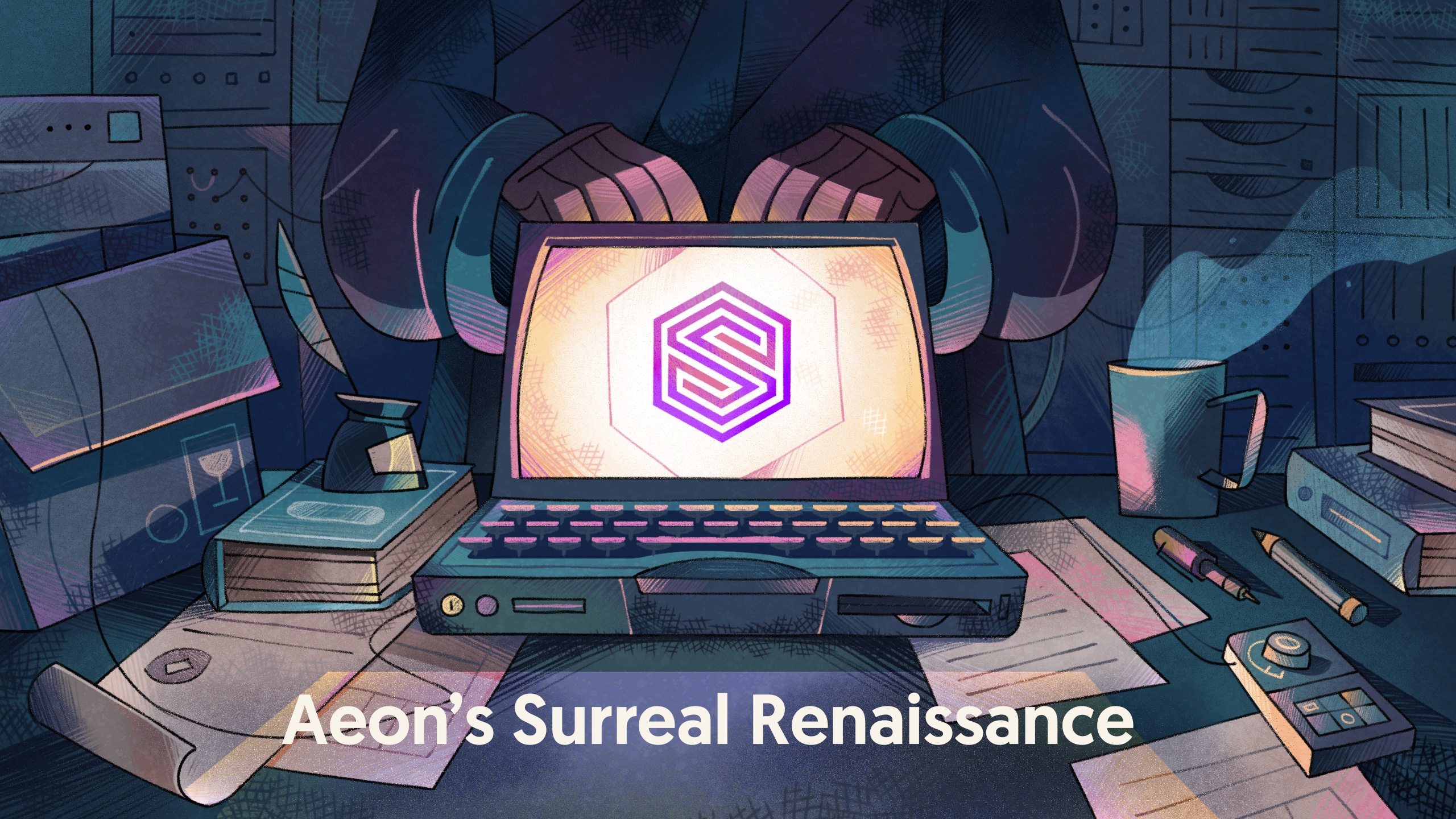

FAQ (contains spoilers)
Aeon's Surreal Renaissance FAQ (with spoilers)
This is the FAQ with spoilers for the entire book! Consider yourself warned.
Why did North America regress more than Europe after civilisation fell?
Climate and geography. The air conditioner led to a surge in population in the southern US, but with electricity gone, people fled to more temperate locations. Those east of the Rocky Mountains went east, and those west of the mountains went west, leading to a large divide and breakup of communication. Most people ended up on the more humid coasts, and higher humidity led to a quicker disintegration of the works of the past (plus people using them for basic materials).
{/  /}
/}
The situation was different in Europe. A smaller continent with more languages, very few people would have chosen to flee anywhere farther than their mother tongue could allow them to understand people, so very few people in western Europe migrated. Meanwhile, drier countries just across the Mediterranean retained much of the buildings of the past for a longer time, so Europeans never entirely forgot that the world was once a great technological civilisation.
With the Sahara desert as an even greater barrier than before, Europe and Northern Africa probably began seeing themselves as a single location with a "lake" in the middle, as was the case in the past.
The Chappe telegraph is really interesting. Where can I learn more?
Agreed! I only found out about it myself during the making of this book. I was looking for some sort of technology that made sense to implement around the middle of the book. It needed to be useful but not require any sort of modern technology that Aeon's world wasn't capable of at the time. So that meant no wires, no transistors, nothing of the sort. A bit of searching around for what preceded the modern telegraph soon turned up the history of the Chappe telegraph, which was the perfect solution.
The best video I've seen on the Chappe telegraph is this one. Apparently it was even used in the 1830s for perhaps the world's first wire transfer scam in which two brothers were able to obtain financial data before anyone else and make stock trading decisions based on it. I saw that story and thought I would do something similar, in which the town of Bulton (modern day Calgary, where I'm from) uses the new technology to gain a competitive advantage over its rival, Edmond's Field (modern day Edmonton). In exchange for losing the war I gave them the cooler name (almost identical to Emond's Field from the Wheel of Time).
How did the DVDs in the library not fall apart? DVDs don't last for centuries.
DVDs do not, but there is a technology called M-DISC that lasts for up to 1000 years. As the fall of civilisation takes place in the late 21st century, I am assuming that people continued to perfect M-DISC to last thousands of years, while still colloquially calling them DVDs. By this time pretty much nobody had a DVD player anymore, so they ended up being just used for storage and thus Aeon's library has only these disks but no players to view them with.
Did Aeon in Chapter 21 make the right decision? It seems like a bit of a gamble.
It's possible. What do you think?
With technology there is always the possibility of a tragic mistake, like the creation of Skynet in the Terminator series. The formula wouldn't account for simple mistakes like that. So it's always possible that Aeon's decision to not delete the database set the stage for such a tragic mistake to happen one day. But that wouldn't be related to the formula's appraisal of humanity as a whole.
What the formula does account for is whether humanity will end up in some sort of doomed state by its own fault. The obvious way this could happen is through advanced weaponry that gets deployed without any thought to the consequences. But the other possibility is that humanity will sink into some sort of state akin to what you see in WALL-E or Ready Player One, where life does go on but humans themselves are a shadow of what they used to be: addicted, obese, spending their lives inside false realities, and so on. I assume the formula would also count this as doomed.
The challenge for Aeon going forward will be do turn people's attention towards the warning that the formula gives and to get them to think deeply about the coming age and the responsibility it entails, not just the shiny new tools that technology will bring. It's certainly possible because this fourth Aeon seems quite charismatic and still has the attention of the entire world via the database.
It really depends on Aeon's charisma and ability to set the tone for the next decade or two of life (because Aeon at this point is getting quite old). Many leaders of the past have succeeded at this though, so I would say that it is probably going to succeed here too.
I enjoyed the story. Can you recommend any other stories with a similar feel?
Yes, as Aeon's Surreal Renaissance shares a lot of themes with other fantasy and science fiction stories.
Star Trek episodes that focus on the Prime Directive. The prime directive is a rule that the Federation (a group of spacefaring societies) will not interfere with societies that have yet to achieve warp drive. Because even the best intended technology sharing to a society that isn't ready will most likely lead to disaster. In this book, the people of the 21st century have effectively violated the Prime Directive by preparing this time capsule of fantastic technology for future people to discover.
Loki, especially Season 2.
The Wheel of Time.
The Star Trek: The Next Generation episode Cause and Effect.